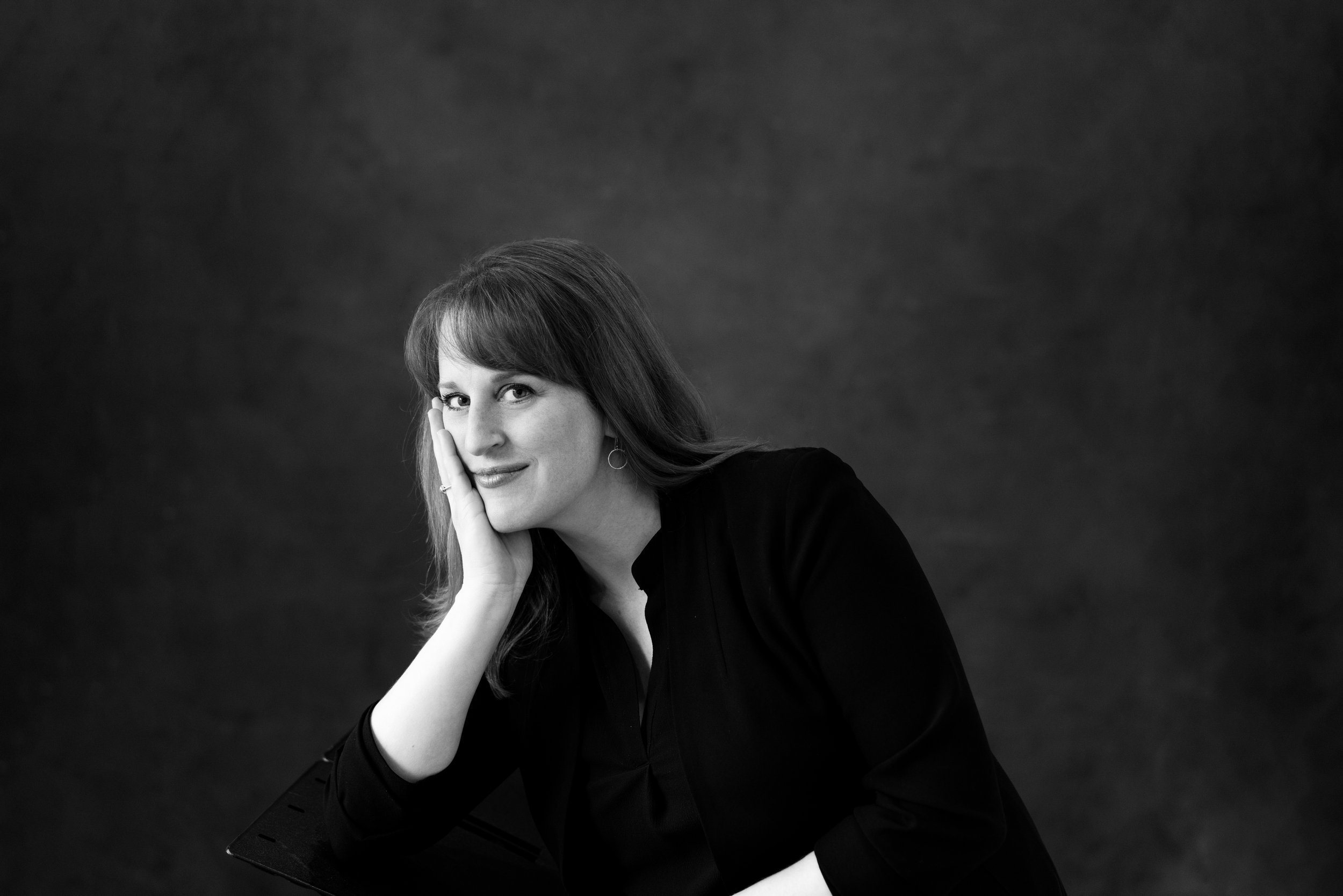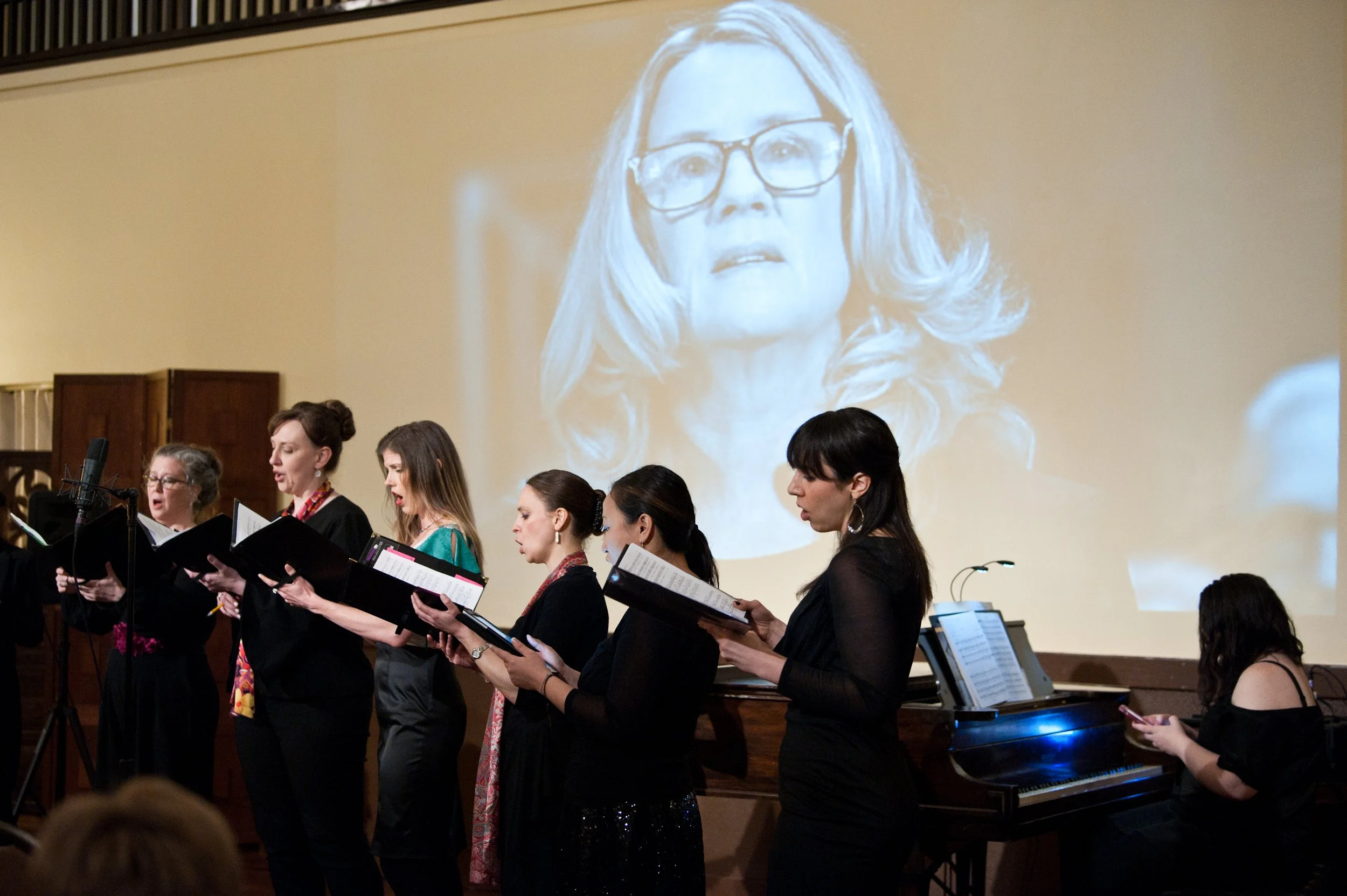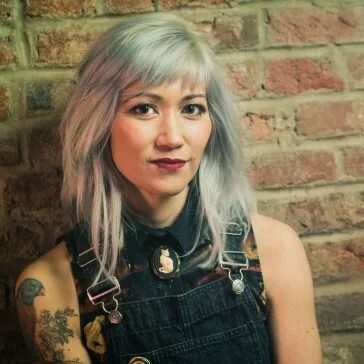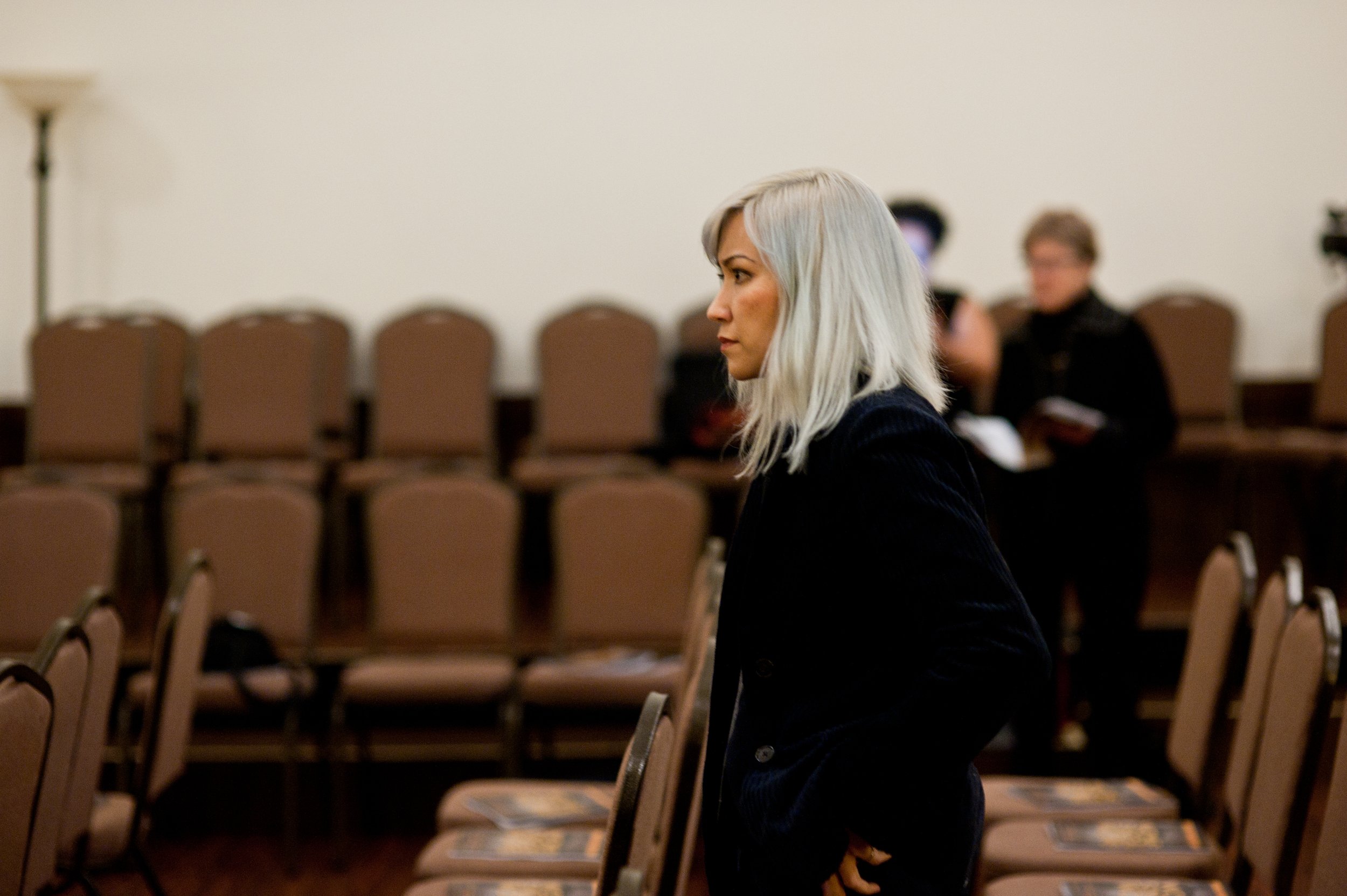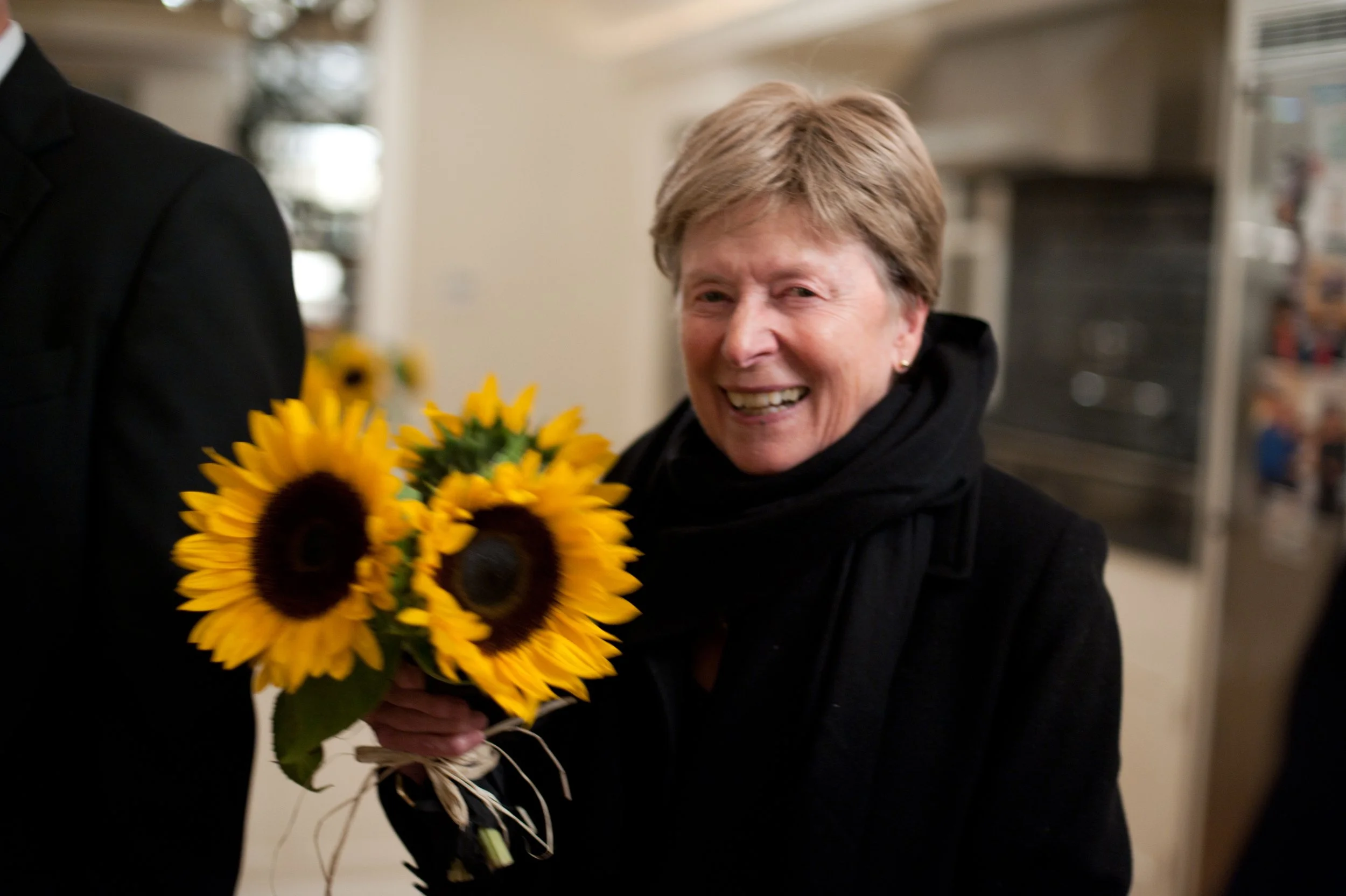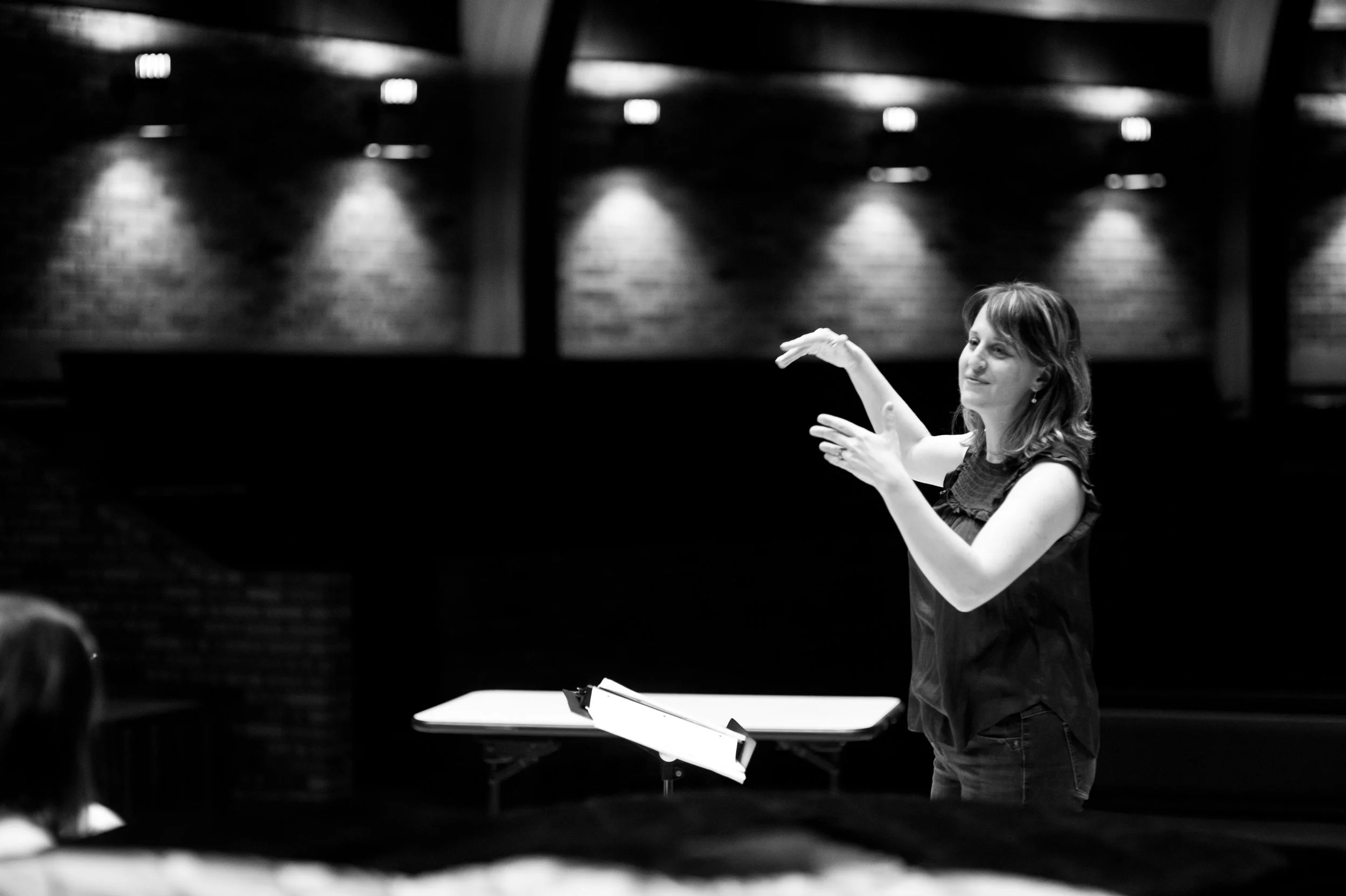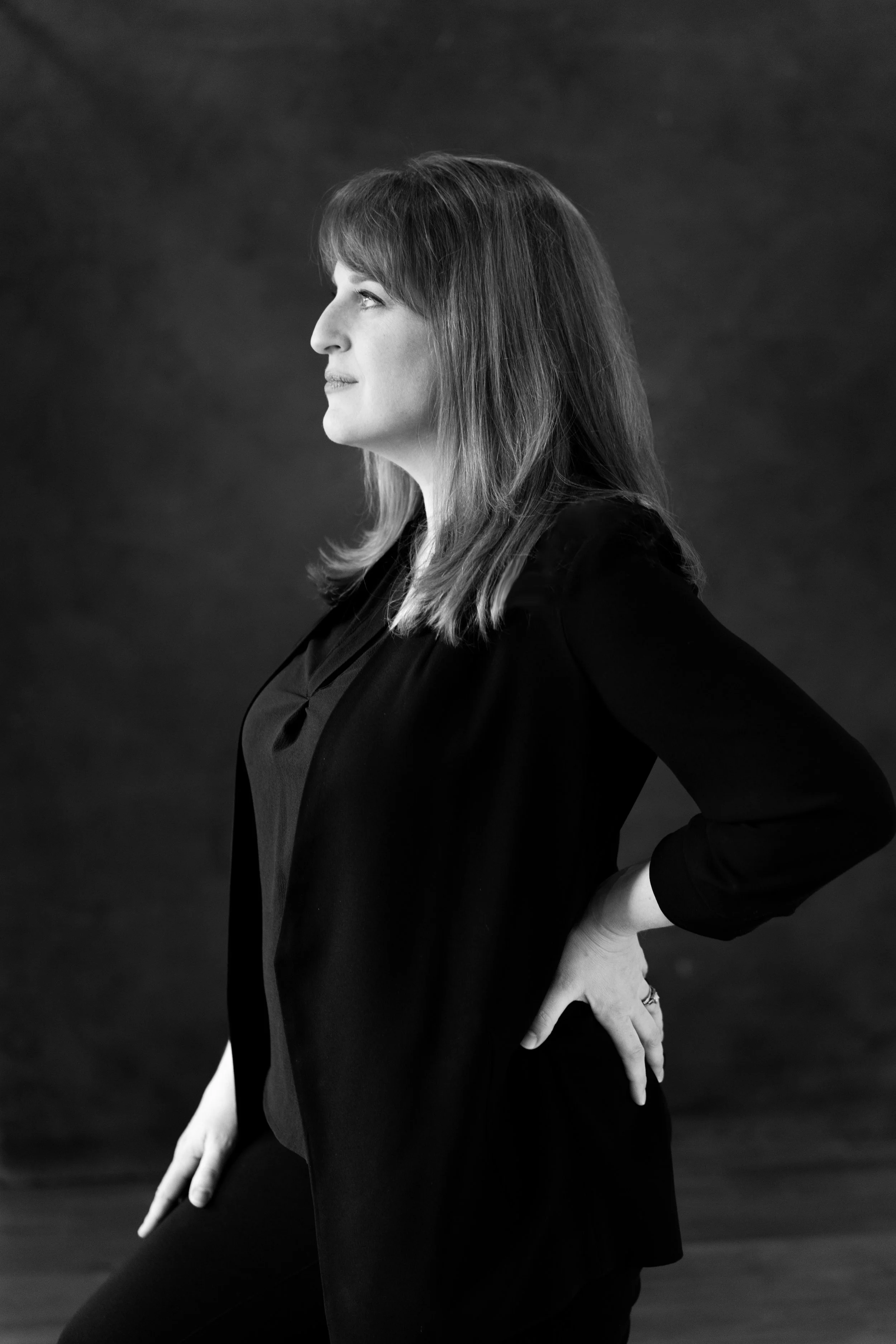LISTEN: An Interview with Dr. Katherine FitzGibbon
Photo Credit: Rachel Hadiashar
We Dissent is the first concert of the newest Resonance Ensemble season, showing October 1st and 2nd at the newly-renamed Alberta House. This program explores bodily autonomy and includes works that are both new to Resonance Ensemble as well as audience favorites from the 2019 concert program, Women Singing Women. This week we sat down with Founder and Artistic Director, Dr. Katherine FitzGibbon, to find out what this first concert has in store.
One of the pieces you’ve programmed on We Dissent is a reprisal of LISTEN by composer Melissa Dunphy - can you give us a little background on that piece and how it came to be?
Resonance Ensemble rehearses LISTEN by Melissa Dunphy.
Back in 2018 many of us were watching the Senate confirmation hearings of Brett Kavanagh in which Dr. Christine Blasey Ford bravely came forward to talk about her experiences as a student experiencing assault. After her testimony, she was vilified—her family threatened—all for speaking her experience. I know that I and many friends talked about how we felt we were in a helpless rage in the wake of this, wishing there was something we could do. Then I remembered Oh wait, I’m a musician - there is something I can do. I realized that this was an opportunity to create a piece of music that would speak to that experience—of having your story completely discounted. I knew I had to commission a piece.
LISTEN composer, Melissa Dunphy (Photo provided by Melissa Dunphy)
I reached out to Melissa Dunphy, whose work I was already familiar with [Resonance did a performance of What Do You Think I Fought for on Omaha Beach?]. I was really struck by the way she took those words—which were also from a Senate testimony—and chose those that were the most poignant, the most gripping; she set those words in a way that had an emotional arc. When I reached out to her to commission the piece, she immediately agreed—she too had been experiencing some of those same feelings listening to Dr. Ford. She wrote two movements for us. The first set testimony by Anita Hill in the Clarence Thomas hearings, and the second sets Christine Blasey Ford’s testimony. It was both shocking and tragically not shocking—just how many parallels there are between these testimonies, and in the way both women were both treated publicly.
Can you speak a little more about the premiere?
When we first premiered it, it was one of the peak musical experiences of my life. Along with the African American Requiem from last season, I’m hard pressed to think of when a premiere of a work has felt as deeply transformative for everyone there—for both the musicians and the audience.
Composer Melissa Dunphy watches rehearsal before the premiere of LISTEN. Photo provided by Resonance Ensemble.
Even the rehearsal period was a lot. As a singer, you need to keep your emotions in check. If you’re trying to fight back tears, it can be pretty impossible to do the nuanced vocal work that a piece like this requires. The performers had to keep a little bit of distance between themselves and the music to prepare themselves for the deeply emotional experience of singing these words and gorgeous music that Melissa wrote. In the performance, it was even more challenging because we could see and hear the audience members who were moved and horrified in real time. I remember even though I had my back to the audience, I could hear sobs coming from behind me. You can imagine how difficult it was to keep your emotional response in check in that moment.
Composer Melissa Dunphy and Dr. FitzGibbon embrace as the audience cheers following the premiere of LISTEN
So, as soon as the applause started, we were finally able to let our guard down. The entire choir burst into tears, I burst into tears, Melissa Dunphy burst into tears. She came up and we hugged and sort of stood there and sobbed—the audience as well. There was something cathartic and really powerful–that these two stories were so discounted and denied publicly, that we had the opportunity to make sure they were heard—really heard—and to do so with this really gripping music.
Earlier you mentioned that feeling of helplessness/hopelessness before you commissioned the piece—do you feel like what happened with Roe v Wade over the summer brought up similar feelings? Is that what made you want to bring the piece back this season?
From 2019’s program Women Singing Women.
Yes, very much so. Everyone I talked this summer with was shocked by the Supreme Court decision—I’ve been disheartened and frankly, terrified, by the rapidness of changes in so many states across the country and the differences now in laws regarding reproductive rights. We had a sense among the Resonance team that we needed to respond to how important constitutional rights and protections have been removed for people in so many places.
We changed the focus of our first concert entirely because of the Supreme Court decision this summer. We felt that this is what we as an organization could do—to put on a concert that would invite the audience to hear many different perspectives, and to try and galvanize listeners into action they can take in their own communities.
Do you feel like LISTEN has a different or added meaning now?
Well for one thing it is certainly chilling that both of the justices who were involved in those previous confirmation hearings are the same ones who voted down Roe v Wade. I can’t help but think of how there’s this consistent theme of marginalized genders not being listened to, not being able to share their stories safely, and not being trusted to make decisions about their own bodies. It all feels interrelated, part of this patriarchal system that troubles and terrifies me. I’m raising two small kids right now, and I’m thinking about what kind of messages they’ll pick up in this world they’re entering—messages about whose voices matter. I’m trying to make sure I do what’s in my power to educate them accordingly.
The commission of LISTEN was made possible through the support of Dinah Dodds, a fierce advocate for the arts and Resonance supporter who has since passed away. Her commitment to social justice, the creation of new music, and supporting local artists lead to the Dinah Dodds Fund for the Creation of New Art, which supports this reprisal of LISTEN.
So, building off of this reprisal of LISTEN, how did you pick some of the other pieces for this program?
Several of these other pieces came from our 2019 spring program, Women Singing Women, which highlighted our Resonance treble voices exclusively. We Dissent still features treble voices only, but this year we are also really thinking about sharing different perspectives of bodily autonomy and the wide array of people these issues impact.
From the 2019 program Women Singing Women.
One of the first pieces I knew I wanted to reprise was Portland-based composer Stacy Phillips’ work Witch Trial. This piece is about yet another woman who was publicly persecuted. Stacey recently told me, “It breaks my heart that this work is still relevant,” and we couldn’t agree more.
We’re also going to perform Mari Esabel Valverde’s When the Dust Settles—inspired by Miss Major Griffen-Gracy, who was a grassroots organizer and transgender activist whose work focused heavily on people of color. The text by Amir Rabiyah asserts that trans women have a right to life, to pleasure, to grow old, and proclaims, “we are still here!” I love this work so much. The desire for bodily autonomy this piece captures is something I know a lot of people will relate to, and I believe it is a struggle we can support one another through.
Dr. FitzGibbon conducts rehearsal. Photo provided by Resonance Ensemble.
We will also be doing an SSA arrangement of Sally’s Pigeons by Cyndi Lauper, which is new to Resonance. In this song, she tells the story of a friend she grew up with who got pregnant, before Roe v Wade was initially passed. Her friend had to get an abortion in an unsafe environment and didn’t make it home. It’s a pretty chilling reminder of what happens when abortion is not legal. It’s a very thought-provoking and haunting kind of song, and I’m glad we’re able to bring this story to our audience.
We are ending with Jocelyn Hagen’s Starting Now. I love this piece. It acknowledges the helpless, hopeless feelings we all have about the world at times—how we don’t always know what to do. The piece affirms that starting now, this is what we can commit to doing. I like that it takes the feelings stirred up by pieces like LISTEN and transforms them into a path forward.
Can you talk a little bit about the connections between being a singer and the idea of bodily autonomy?
When I was a young singer, I was asked to think about the statement “my voice is who I am”–to think about how true that was for me. Your voice really is your embodied expression. You are using your body as an instrument. There is no additional instrument as a secondary, mediated form; it’s everything you bring to the table. If you’re tired, if you’re depressed, if you're nervous—all of that directly affects your instrument. Feeling safe and feeling free are necessary components for being able to express yourself vocally in the truest way.
Photo Credit: Rachel Hadiashar
Singing certainly is an act of courage for any one. Especially when you’re singing the kind of music we program at Resonance–which can be extremely personal, very direct, maybe even challenging to one’s own views of the world.
Do I feel free in my body? Do I feel like I can be who I am? Do I feel like the pathway between my musical intention and what comes out of my mouth is fully unobstructed? How I’m able to care for my body and feel cared for in my body really matters. And that’s me as a cis woman. Friends of mine who are trans have talked about how, at any moment, they kind of have to be on guard—to have a little piece on guard. Because they never know if any place they’re walking into is a safe place—if someone is going to do something or say something violent. It can feel like an act of bravery to express oneself openly, to just be who they are.
So right now, I’m thinking a lot about how do we as a society provide safety for everyone. This is kind of what our season theme, Justice for All? question is exploring. There are many forms of justice, but one of the most basic is the ability to walk safely, talk safely, and be free to express yourself safely.
Single tickets for We Dissent—showing October 1st and 2nd at Alberta House—are on sale now. CLICK HERE to visit the event page for more information, or CLICK HERE to learn about the rest of our season.

